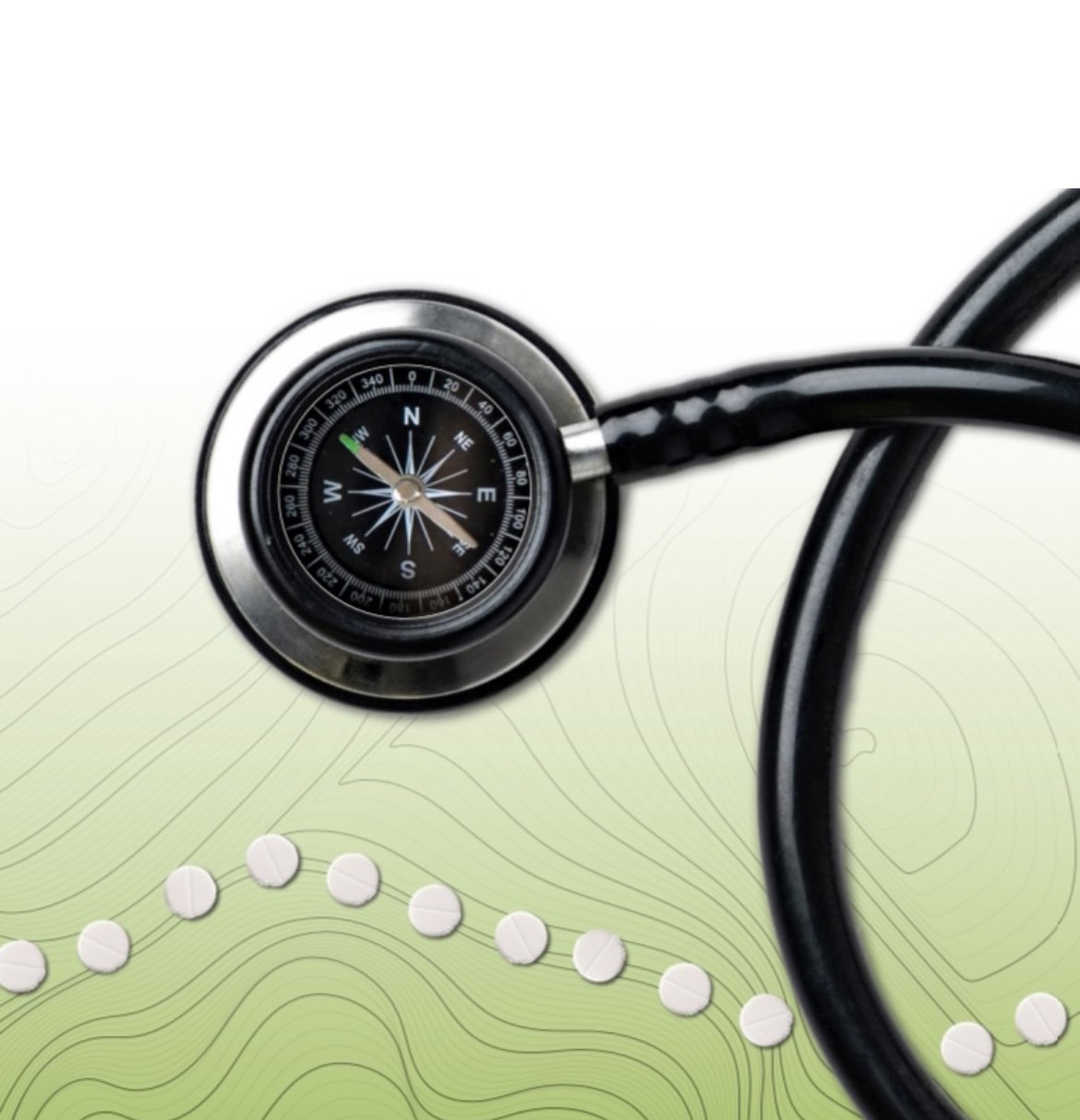
Maria Gibson MD, PhD
Dr. Gibson is a Clinical Professor at the University of Arizona College of Medicine, Department of Family, Community & Preventative Medicine in Phoenix, Arizona.
She received her MD and PhD degrees from Siberian State Medical University, completed residency in Family Medicine at Duke University and Fellowship in Integrative medicine at Andrew Weil Center of Integrative medicine at the University of Arizona. She trained hundreds of medical students and physicians at the Siberian State Medical University, Medical University of South Carolina and Emory University.
Through her personal and patients' journeys of experiencing the vulnerability of being ill, Dr. Gibson tells stories of recovery and healing providing you with a clear guide on how to find reliable health information, medical practice that fits, pivot chronic illnesses, survive hospital stay and make informed decisions, that fit into your goals, culture, and budget.

From“ Find Your Way: Illness, Doctors, and Healthcare
“There is no training for patients on how to be in charge of their health, when and where to seek medical advice or how to become doctors’ partners. We learn this as we go through our or our loved one’s struggles with illnesses and experiences with doctors and healthcare.
In this book, I have collected suggestions and recommendations that I wish my patients knew while looking for answers to medical questions, communicating with their doctors and medical teams, and making decisions about their health. This book is a guide on how to take charge of your health and build partnerships with your clinicians, so that decisions being made fit into your goals, culture, and budget.
Through examples of my patients, who have taught me wisdom about patient-doctor communication, I will show you how to recognize and overcome the obstacles for your medical care by identifying your health footprints—your roots and medical history—and developing self-awareness about your risks, powers, and self-destructive behaviors. Through learning about your “normalcy” pattern, you will be able to recognize symptoms and signs of illness and spot the red flags that should prompt you to seek help. I will show you how to communicate your medical history in a form that both you and your doctor can understand, share, and use to make your visits efficient and productive.
This book will help you to find your way through illness and healthcare; when, how and where to seek answers to your medical questions, find the “right” doctor and how to navigate through medical offices and hospitals. In other words, I will show you how to create your healthcare map and use medical services to your advantage. When you know your way, you can take charge of your healthcare.
You might think, “It’s easier for a doctor to take charge of my health.” But after three decades of doctoring, it was only after I stepped into my patients’ shoes and felt the vulnerability of being sick, and the pressure of uncertainty or whether I would ever be cured, did I realize that we are the owners of our bodies and we are in charge of our health. We just have to find the way”.
Longevity+MD™
Maria Gibson MD, PhD
9700 N. 91st St., Suite A-115
Scottsdale, AZ 85258
-Google map
-Get directions
Get in touch:
E-mail: info@longevityplusmd.com
Phone: (480) 788-8348
Fax: 316-333-7042
Web: www.longevityplusmd.com
★★★★★"This book is a must-read for anyone who has ever felt overwhelmed, frustrated, or confused by the healthcare system (i.e. all of us, even physicians). What sets Find Your Way apart is Dr. Gibson’s ability to break down the complexity of the healthcare system complex into clear and understandable language – and, more importantly, give the reader a road map to getting their best health outcomes”.
- R.Todd Hurst, MD, Cardiologist, Founder of HealthspanMD.
“★★★★★ By weaving practical advice based on her experiences with personal stories of real patients to emphasize and highlight the important aspects of medical encounters, Dr. Gibson creates an interesting and accurate narrative. I highly recommend this book to anyone who wants to better understand how to interact with the medical system and its providers. “
-Michael L. Miller, DO
★★★★★ “An incredible book that should be on everyone’s night stand. It is super-readable - and contains an extraordinary amount of useful advice, made engaging and extremely easy to consume and understand.The book is not only well written, it is super relevant. I was captivated by your personal anecdotes - your ability to draw your reader into the material is outstanding”.
- Ann Parriott

What is Longevity Medicine?
Longevity medicine, also known as anti-aging medicine or preventive medicine, is a medical practice that focuses on promoting healthy aging and extending both the quantity and quality of life. It takes a proactive and holistic approach to healthcare, aiming to prevent age-related diseases, slow down the aging process, and optimize overall well-being.
Longevity medicine recognizes that aging is a complex process influenced by numerous factors, including genetics, lifestyle, environment, and individual health history. It combines the principles of traditional medicine with advancements in scientific research to develop personalized treatment plans and strategies tailored to each individual's unique needs.
The core principles of longevity medicine involve identifying and addressing the underlying causes of age-related decline rather than merely treating symptoms. It emphasizes early detection and intervention, with a focus on preventive measures and lifestyle modifications. By optimizing factors such as nutrition, physical activity, stress management, hormone balance, and sleep patterns, longevity medicine aims to enhance overall health, vitality, and resilience, ultimately extending the healthy lifespan.
-
Longevity medicine practitioners employ a multidisciplinary approach, collaborating with specialists from various fields such as nutrition, exercise physiology, genetics, and psychology. They utilize advanced diagnostic tests, biomarker analysis, and genetic profiling to assess individual health risks and develop personalized treatment plans. These plans may include recommendations for dietary modifications, exercise regimens, supplementation, hormone optimization, and other interventions tailored to address specific health concerns and promote healthy aging.
Research and science -focused practices are fundamental to longevity medicine with patient education and empowerment as are key components. Longevity medicine encourages to take an active role in their own health, make informed decisions, and adopt healthy lifestyle choices.
Overall, longevity medicine seeks to go beyond the traditional disease-centered model of healthcare and shift towards a proactive, preventive, and personalized approach that aims to optimize health, well-being, and longevity.
By addressing the root causes of aging and age-related diseases, longevity medicine holds the promise of enhancing both the quantity and quality of life as individuals age.
It’s not a secret that we as patients, now equipped with unlimited online resources, want to play an active role in our health journey. Studies showed that our general doctor's advice, “eat healthy and exercise”, given during the brief visits, does not work. We are different and have our individual risk factors, resources, weaknesses, and health conditions and need expert-level, compassionate guidance. That’s why starting in 2015, I developed a program guiding patients on science-based life-style changes, based on the individual assessments, incorporating integrative medicine resources, patient’s empowerment strategies and multidisciplinary approach.
By establishing Longevity+MD™, I intend to fill a crucial gap in the healthcare system, providing personalized, proactive, and integrative guidance focused on longevity and overall well-being for those who are healthy and those who suffer from chronic medical problems.
In Longevity+MD™ I join my patients in their healthcare journey, wherever they are, by giving them my knowledge of primary care and integrative medicine as well as three decades of experience to guide them through their individual challenges, optimizing their healthcare, and mitigating their individual risks.
By addressing the root causes of aging and age-related diseases, I would like to empower my patients to make informed decisions and take charge of their health.

How longevity medicine is different from Primary care?
Longevity medicine and primary care overlap, as they both offer medical services to advance health and well-being. However, there are several key differences:
1. Focus:
Primary care
focuses on providing comprehensive healthcare services for individuals of all ages, addressing acute and chronic illnesses, and managing a wide range of health concerns.
Longevity medicine
specifically emphasizes healthy aging, disease prevention, and optimizing overall well-being in order to extend both the quantity and quality of life.
2. Preventive vs. Reactive:
Primary care
often operates in a reactive manner, where healthcare providers primarily address health issues as they arise and provide treatments accordingly.
Longevity medicine
takes a proactive and preventive approach. It aims to identify and address the underlying causes of age-related decline early on, before they manifest as diseases or health conditions. By focusing on prevention and lifestyle modifications, longevity medicine seeks to minimize the risk of developing age-related diseases and slow down the aging process.
3. Holistic Approach:
Primary care
typically addresses individual health concerns on a case-by-case basis,
Longevity medicine
takes a more holistic view of health. It considers the interconnectedness of various factors, such as genetics, lifestyle, nutrition, exercise, stress management, and hormonal balance, in determining overall health and aging. Longevity medicine practitioners often take a broader approach by addressing multiple aspects of an individual's health and well-being to optimize long-term outcomes.
4. Personalization:
Longevity medicine
places a strong emphasis on personalized medicine. It recognizes that each individual is unique and may have different genetic predispositions, health histories, lifestyles, and goals. Longevity medicine practitioners use advanced diagnostic tests, biomarker analysis, and genetic profiling to assess individual risks and develop tailored treatment plans. Primary care, while also considering individual characteristics, may have a more generalized approach due to the broader population it serves.
5. Collaboration and Specialization:
Primary care
providers may address a wide range of health issues themselves or refer patients to specialists and other providers as needed.
Longevity medicine
often involves collaboration with specialists from various fields, such as nutrition, exercise physiology, genetics, and psychology. This multidisciplinary approach allows for a comprehensive evaluation of an individual's health and the development of integrated treatment plans.








